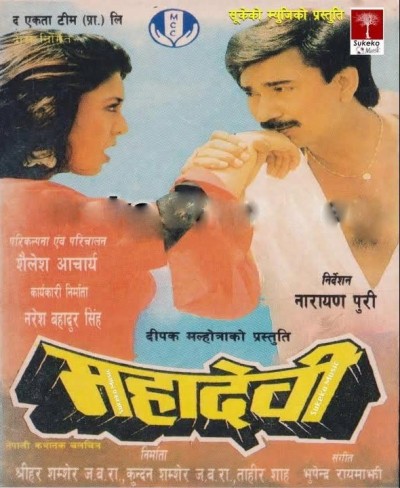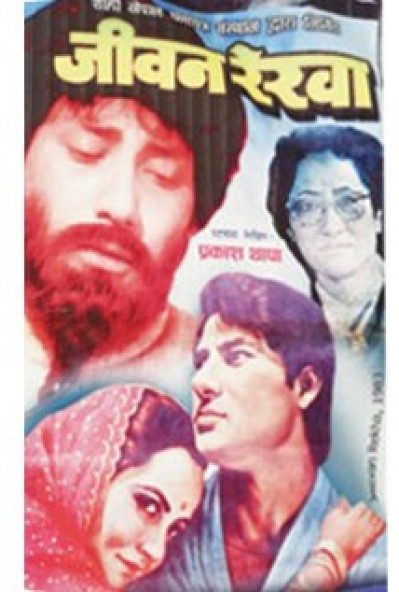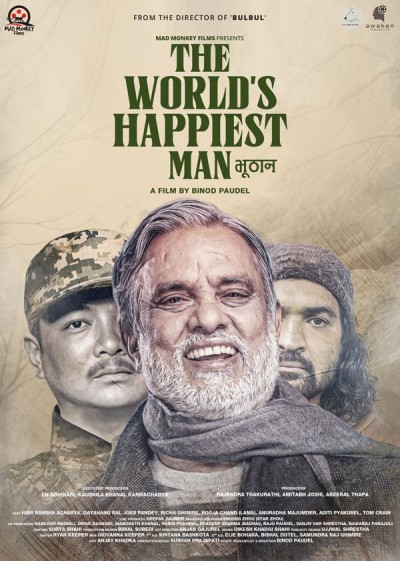Something Wrong?
Prem Dhoj Pradhan, born in 1938 in the serene town of Chautara, situated 28 miles east of Kathmandu, was raised by his mother in an environment where music held profound significance, intertwined with the essence of a meaningful life. As he grew, he developed a deep love for music, with his mother, Mrs. Buddha Laxmi, being his first music teacher. In 1954, for a brief eight months, he attended school under the guidance of the late Mr. Ganesh Lal, a renowned figure in Nepal's music scene. It was from this maestro that Prem Dhoj absorbed the fundamental principles of classical music. Nevertheless, Prem Dhoj remained primarily a self-taught artist, viewing music as both a discipline and a source of relaxation. His musical journey thus became a continuous quest for self-expression, marked by relentless practice and artistic cultivation, resulting in a series of enduring compositions.
In 1953, at just sixteen years old, Prem Dhoj participated in a voice test sponsored by Radio Nepal. His enchanting performances with songs like "A Maun Nisha Ka Tara Ho" and "O Chhu Galli Thaw Chhu Galli" catapulted him to become the most sought-after artist for cultural events and programs. It appeared as though Prem Dhoj's songs gave voice to the inner aspirations of an entire generation of Nepalese youth. Yet, during this period, the young artist was still in search of a distinct style and technique that would enhance his musical talents. Until 1959, he oscillated between group songs with a patriotic theme (initiated by songs like "Yo Nepali Shir Wuchali") and melancholic melodies of romantic yearning.
In 1961, an unfortunate health issue forced Prem Dhoj to temporarily halt his singing career, as a non-malignant growth of polyps was discovered on his left vocal cord. After a successful operation, he refrained from singing for two years, marking a significant turning point in his career. During this hiatus, he discovered the guitar and, through relentless practice, incorporated it into his musical style. It was only after the surgery that Prem Dhoj began recording his songs earnestly, with fresh wellsprings of inspiration. In 1963, he was awarded the best voice prize in the All Nepal Modern Songs Competition for his timeless hit, "Goreto Tyo Gaunko." With newfound technical assurance, Prem Dhoj embarked on a series of brilliant and successful recordings. His first-ever discs, featuring hit songs like "Goreto Tyo Gaunko," "Maya Na Mara Mayalu," and "Timi Aayo Mero Dil Ma," were recorded in the autumn of 1963. By the end of 1969, he had already recorded 32 songs, most of which were to his credit. It's worth noting that since 1959, he had been working 40 hours a week at the Kathmandu U.S.I.S office to make a living while simultaneously attending evening college, where he successfully graduated in arts in 1967. Furthermore, a significant portion of his recordings, approximately eleven out of sixteen discs, was done at his own financial risk and involvement. Prem Dhoj had devoted himself to Nepali music not as a casual enthusiast but by investing his heart, soul, and resources into it.
Towards the end of 1964, Prem Dhoj recorded another set of ten songs, eight in Nepali and two in Newari. Out of these, six were in Newari, his first language, and included well-known folk songs from Kathmandu's festive and vibrant Newari culture. Songs like "Rajamati Kumati" secured Prem Dhoj a lasting place in the hearts of his people. This collection of songs, both in Nepali and Newari, marked a new trend where Prem Dhoj exhibited an increasing inclination towards a rich musical synthesis, blending Nepal's traditional folk and pastoral styles with modern romantic elements. Like the snow-capped peaks of the sub-Himalayan landscape, the idyllic natural surroundings often served as a backdrop to Prem Dhoj's soul-stirring melodies. In his compositions, he explored various facets of love, including its solitude, nostalgia, and endless yearning for the enchanting beauty of Nepal's countryside, transcending mere love songs. The lyrics of M.B.B Shah, Ravindra Shah, Kiran Kharel, Ratna Shumshere Thapa, and Ratna Lal Shrestha were among his favorites, and his mellifluous and refined voice infused their poetic language with a refreshing, invigorating rhythm.
In November 1965, Prem Dhoj received an invitation from the celebrated Indian music director Jaidev to collaborate with Usha Mangeshker in a duet for the Nepali film "Maiti Ghar." His duet with Usha, composed by Jaidev, became a classic of its kind in Nepali music, known for its lyrical atmosphere of romance. However, it was his last collection of sixteen songs (12 Nepali and 4 Newari) on eight 78 r.p.m. discs that firmly established Prem Dhoj as one of Nepal's leading modern singers. This collection bore distinct traces of deep sadness and profound shadows, beginning with songs like "Yo Masuam Udas" and culminating in the tragic anticipation of "Yo Janam Ma Vet Na Bhaya." Yet, Prem Dhoj continued to explore his native strains of woodnotes, blending the wild and romantic with the coy and pastoral, all in a complex fusion of guitar and madal, jhyaure and shayari. His relentless pursuit seemed to revolve around revitalizing the folk musical idiom.
This quest continued in the collection of ten songs presented in his first LP. Each number represented a unique experiment, featuring the same five instruments he had consistently used. While he didn't abandon his beloved flute, madal, and guitar, he subtly incorporated the saxophone and electronic organ. The departure from his previous work was not so much in the use of these sophisticated instruments but rather in the deepening intensity of his passionate expressions, aimed at capturing the sometimes cruel yet generous nature and pastoral beauty. In his unwavering admiration for both, Prem Dhoj delivered another set of hit songs in his characteristic style.


































